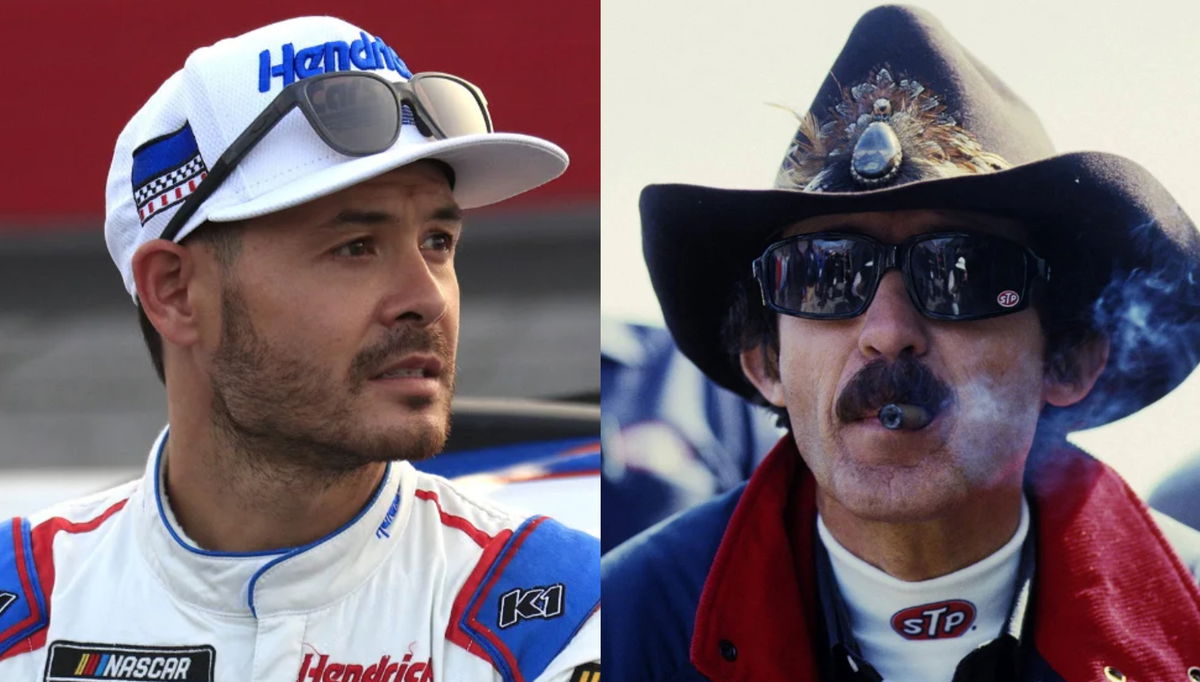
Imago
Image Credits: Imago

Imago
Image Credits: Imago

Imago
Image Credits: Imago

Imago
Image Credits: Imago
Daytona didn’t just deliver high-speed drama, it stirred up real tension. Kyle Larson’s aggressive late-race move lit a fire that’s still burning, with fans and drivers alike buzzing about what comes next. From pit lane whispers to social media storms, talk of payback has taken over. And now, Richard Petty has entered the conversation, and what he said might just shift the tone entirely.
Watch What’s Trending Now!
During the closing laps of the 2025 Coke Zero Sugar 400 at Daytona, Kyle Larson made an aggressive move that bumped Erik Jones out of position while both were battling near the front. Jones, who needed a win to make the playoffs, lost momentum and dropped back, ultimately finishing fifth, just short of qualifying. Larson, already locked into the postseason, defended the move as part of superspeedway racing, but it sparked backlash from fans and fellow drivers.
Richard Petty’s candid perspective
When approached directly about the revenge chatter targeting Kyle Larson, Richard Petty was characteristically blunt yet disarming. Using measured words, Petty stated, “No, that… uh… Eric don’t drive like that… You know what I mean?… It’s over with, okay?… That… that was last week… Forget it… That’s going down the road…” This sentiment echoed the old-school mentality Petty is known for, one that values moving forward and focusing on the next race, not getting mired in payback narratives.
Petty’s direct approach stands in contrast to the social media frenzy, where calls for retaliation, especially after Larson’s aggressive, arguably ill-timed move at Daytona—had reached a fever pitch. Petty’s comments suggest that skill, not revenge, should define a driver’s legacy.
His assessment was clear: “That was last week…Forget it…That’s going down the road.” This is not just an attempt to shut down speculation but a reminder of the cyclical, high-stakes nature of NASCAR, where every driver gets both their highs and lows, and the sport doesn’t have room for lingering vendettas.
FAN QUESTION: Should @Erik_Jones put Larson into the wall the next time the opportunity presents itself?
Via Facebook user, Gary Saville.
Full Race Recap and more answers to fan questions tomorrow at 8am on the Petty Family Racing YouTube channel. pic.twitter.com/nKCscYLTFg
— Richard Petty (@therichardpetty) August 25, 2025
Supporting Petty’s philosophy, his co-host added more technical context to the infamous incident: “Larson was just… he was just real aggressive… maybe three or four laps too early… what I was thinking… that he’s not gonna push Eric to the win… because that would have put the 48 out… So… that in my mind… with three or four laps to go,” he further added, “Eric done a heck of a job… and I guess… their game plan”.
The subtext here is that Larson’s actions are part of a wider tapestry of strategy, timing, and the split-second decisions that define superspeedway racing, not a one-dimensional narrative of right and wrong.
Petty’s closing attitude echoes throughout his recent media appearances: skill and resilience are what shape a driver’s legacy, not holding grudges or responding to public pressure for retaliation.
Richard Petty’s reality check amid calls for change
Richard Petty has provided a grounded and pragmatic perspective on the ongoing criticism surrounding NASCAR’s Next Gen car. Since its introduction in 2022, the Next Gen or Generation 7 car has drawn significant scrutiny from drivers, crew chiefs, and fans. Many point to issues like handling difficulties, challenges with passing, and the pervasive effect of “dirty air” that hampers close racing.
Despite these complaints, Petty emphasizes that there is no single fix. “It’s going to be a combination of things,” he said, referencing potential adjustments such as increased horsepower, raised ride height, or aerodynamic changes, but insisted, “right now I don’t think anybody’s got it figured out”. Petty acknowledges that the Next Gen car doesn’t resemble the classic stock cars of NASCAR’s past, bluntly stating, “It is a NAS-Car, it is not a stock car.”
This reflects the sport’s evolution and the reality that NASCAR today embraces modernized technology and design. He urges fans and insiders to accept the car as the sport’s current platform and to be patient with the ongoing process of improvement.
As he explains, advancements in NASCAR have always come through gradual, iterative change rather than rapid overhauls. Petty encourages a focus on pushing the sport forward with a clear-eyed view of current realities, emphasizing collaboration and adaptation instead of nostalgic longing or reactionary demands. He also criticized the current race dynamics, noting that strategies and tire management often overshadow pure racing skill and car performance.
He remarked on the Richmond race that fans were more concerned about “what are we going to do on tires” rather than the racing itself, underlining the complex variables affecting race outcomes. Petty’s message is clear: NASCAR’s future depends on embracing the Next Gen car and driving continuous improvements to preserve competitive, exciting racing, an evolution grounded in patience and persistent effort.


